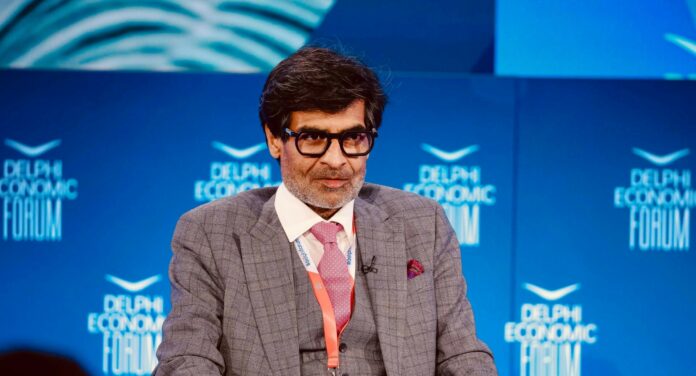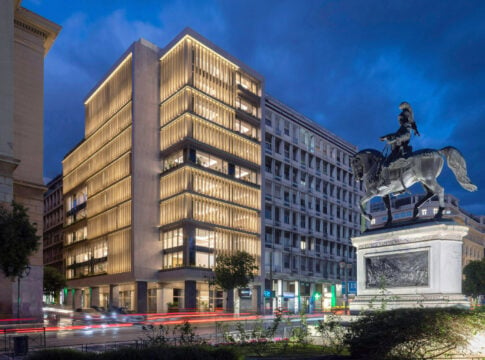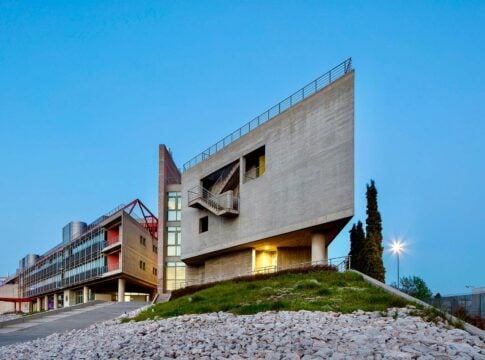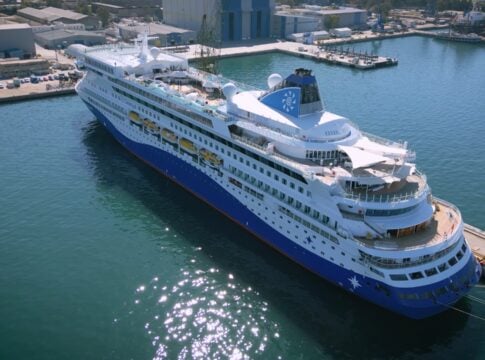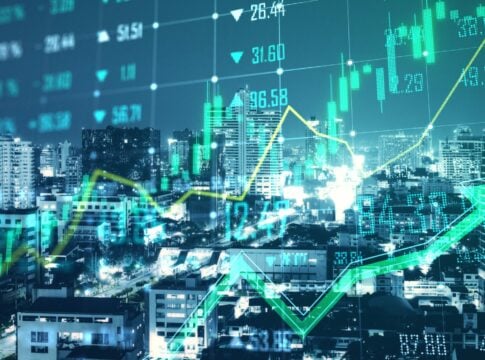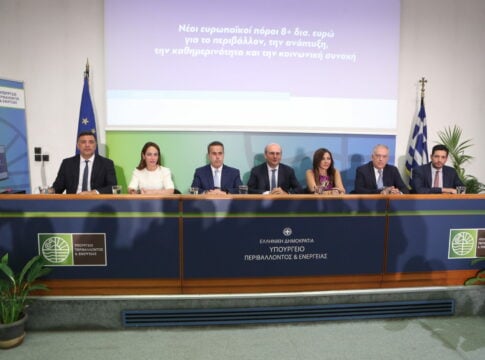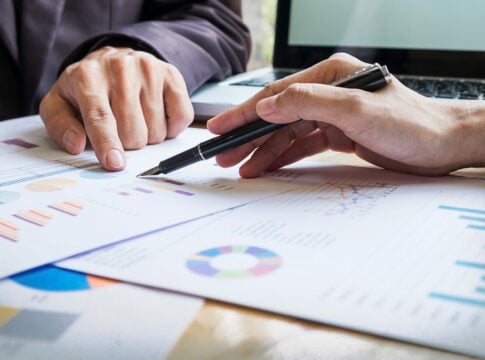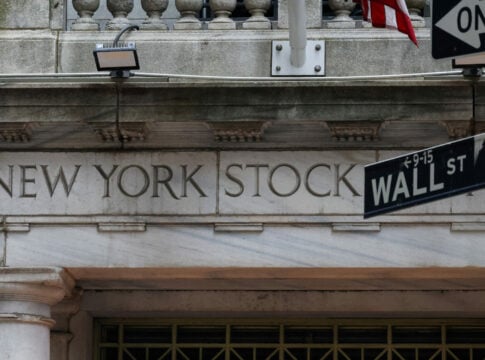“Greece has to become part of the IMEC corridor between India and Europe,” said Samir Saran, President of the Observer Research Foundation (ORF), India’s premier think tank, headquartered in New Delhi with affiliates in North America and the Middle East.
Speaking to Michalis Psilos, Saran said that “Greece must be one of the key partners of India. In this framework, the next obvious step is for Greece to become part of the IMEC corridor.” “Greece is sitting on the mouth of where this new inflow of trade from the East Coast of Africa, from South Asia and from the new dynamic Middle East is going to arrive to flow towards Europe and North America. You know, when you enter the water of the Mediterranean, what do you look at first? What do you see? Greece, of course.”
Samir Saran focuses on issues of global governance, climate and energy policy, technology policy, and India’s foreign policy. He is a member of the Global Risks Advisory Board and Chair of the Global Future Council on Geopolitics of the World Economic Forum. He is also a part of the Board of Governors of East West Centre.
Saran pointed out to “Naftemporiki” and Michalis Psilos that in under a decade, China became the largest trading partner of 100 countries. So when Indian GDP grows from $4 trillion to $10 trillion or $12 trillion, you will see a similar transformation of its relationships with countries. That’s going to happen in the next decade, and Greece must be one of the biggest partners of India in this transition.
Greece and India were aligned on the cause of trade about 3,000 years ago and now we have to strengthen our relationship to serve this century. And both of us must find new determination to partner again. In the past we had forgotten each other, now the process of rediscovery has begun and it is time to build a new modern partnership that adds substance to our ancient affinity.
Mr.President, I would like to ask you about the Indian investments in Greece. Have you seen any new plants or something more specific to promote?
– Indian corporations are already significant investors in the US, in the UK, in Australia, in our neighbourhood and in other countries in Africa and Europe. We are reaching that stage in our economic growth that in the coming years more countries will see investments from us.
There are some investments by Indian firms in Greece in certain sectors. But big new investments will have to be associated with the IMEC project. It will have to be around ports and connectivity. It will have to be around infrastructure. It will have to be around logistics.
“There is a natural logic for aligning our economic future in other sectors as well. India would benefit from the innovation that is taking place in the small and medium enterprises in Greece, in the defence sector, in the outer space sector, even in the storage and energy and green transition sector.”
In all of these, Greek companies are delivering very smart innovations, Saran underlined, provided that they align with Indian markets, they suddenly become world class.
Without this, Greece by itself will find it tougher to compete with some of its European cousins, which are much bigger.
University partnerships
Greece and India cooperate on defence, space, energy, and emerging technology sectors like AI and quantum can flourish as your university system is opening up. You have a new bill. I was telling someone, you must think about the English language master’s program and undergraduate program. You must have Indian students here. It is amazing how smaller countries than Greece have much larger cohorts of Indian students there. Greece could benefit from this Indian urge, the appetite of young Indians to acquire knowledge and education and skills. I think university partnerships are again a good idea. Partnerships between your incubators and ours is a good idea. Defence research, outer space research, they should all be left to the private sector to really mobilise at a new level.
The conflict in Middle East
As we are talking, the tension in the Middle East is dangerously escalating, after the Iranian air attack against Israel.
I’m very anxious for the developments between Israel and Iran right now. In India we are all concerned about this. Look, Indians have a very long -standing relationship with both Israel and Arabs.
In fact, we were one of the most friendly countries. To the Jewish citizens and with the people of the Arab world.
We are concerned. And we do believe the right of Israel to exist. We do support Israel in its counter -terrorism activities. But we do believe in a two-state solution as a lasting one. And we do believe that people should have stability, peace, and dignity in the region, all people.
The same attitude, like Greece…
Exactly, like Greece. You know, we have, in the Middle East, an Indian diaspora that is now numbering up to 8 million already, if I’m not wrong.
So we have a very large diaspora in the Middle East. We have a very strong trade through the Mediterranean, both to Europe as well as to North America and parts of North Africa.
IMEC corridor and Greece
And India wants to open a new corridor, the IMEC, via this region?
India needs new routes, new capacities, it needs new infrastructure. I was telling some of your colleagues in the Delphi Economic Forum that our economy is going to reach 10 trillion in the next few years. We are going to add at least 3 trillion dollars of external commerce to our GDP. Now, where is that going to go? We want existing routes, plus more, because that’s the additionality that we are seeking to add to the system. There are three European countries, the US, Saudi Arabia, UAE, India, and the EU.
Are there any specific steps considering, of course, the recent meeting between prime ministers Modi and Mitsotakis, in India, are there any specific steps in this direction?
The next obvious step is for Greece to become part of it. And I have learnt that they are considering it very favorably, and that is also part of the conversation that happened in New Delhi. And I met your national security advisor and foreign minister yesterday at Delphi, and they gave me the same impression that this is something that is very likely. And I see no reason why it should not be, right?
Greece has to make up its mind. I think this is Greece’s decision to make. India cannot make that decision for Greece. Greece is sitting on the mouth of where this new inflow of trade from the East Coast of Africa, from South Asia and from the new dynamic Middle East is doing to arrive. It’s going to flow towards Europe and North America. When you enter the water of the Mediterranean, what do you look at first? What do you see?
Greece, of course…
So, that’s the answer. You see Greece. Now, the question is, does Greece want to be part of this new arrangement? And I think they must. Similarly, the question here is, if Greece is willing to move away from dependence on one actor, to opening up more options for itself, and becoming part of the larger Indo-Pacific construct? Let’s be very clear about the actors who are putting this together.
Is there any opposite direction between the IMEC corridor and the Belt and Road of China?
Of course there is. This is the design of democracies. Anyone who says this is the same, it is not the same. IMEC is a corridor for countries that have transparent and open economic systems that are trustworthy and accountable to people. They are part of a liberal world order.
India will have an election in a couple of days for 44 days.
That’s right. One billion people will vote. That’s also a very important aspect. So this is a project of democracies. For the first time democracies of the world are coming together as a team and saying we will put something together as an alternative.
And I think that is the big difference. This is designed by democracy. It was designed by Emperor Xi. Big difference.
IMEC is designed by democracy
But India participates with China in the union of BRICS? But you are with China in the same camp, I would like to say.
We are not in any camp. We are in our camp. And to protect our interests, whichever group we need to be in we should be in. So that no such grouping is used as a forum against us. We have to make sure that a country which represents one sixth of humanity is not harmed by nations that are inimical to it.
So we will be part of every group that has implications on our national economic progress, national security and of course the regional dynamics. So whether it is SCO where we are partnering with a number of countries of our regions or BRICS or QUAD or IORA in the Indian Ocean, IBSA – a group of democracies of the global south.
We must be in every group that is required for the benefit of our people. Why should we shy away? In fact, I tell people that it’s because we are in those groups that the groups are not becoming irrational formations.
India is not afraid of a Possible China led conflict
We’re seeing a lot of dangers or threatening developments in the Sea of China. Are you afraid that the new front of war will be in the region?
India is not afraid. Because We are already an active frontier witnessing conflict. I don’t know the exact numbers today, but somewhere between 100,000-200,000 troops have been deployed on our borders to rebuff the PLA. We have soldiers meters away from each other with guns drawn. We are facing the Chinese head on in the highest battlefields of the world. We have lost soldiers. They have lost soldiers. We are engaged in an active face -off in the Himalayas. This is the battlefield in Asia that some in Europe do not want to be reminded of.
EU and China
Europe is looking away. Europe knows exactly what is happening. They are pretending that it is not as Europe is choosing to privilege economics over politics and security and it may be very costly in the long run. You have seen what happened. Your dependence on Russian oil and what it did to Europe. The same dependence on China will be costlier. Unlike Russia, China is not a two trillion dollar economy. China is a 20 trillion dollar plus economy.
So for Europe, it is easy, and convenient to not acknowledge what is happening in the Himalayas.
Europe is enjoying the Chinese economic benefits because their companies are dependent on it. Their economies are dependent on it. They are choosing to look away.
No changes to the map of East Asia
As we are facing off the Chinese already. We are not skeptical of Chinese objectives and intentions. We don’t doubt if they could manage in conflict. We know they will. We know that the Chinese are a revisionist power. They are trying to change the global order. They are going to change the political maps of the world. They don’t have any respect for sovereignty. So we have to be prepared for the eventuality that an irrational China may decide to become adventurous and to decide to change the map of East Asia. We have seen their aggressive behavior towards Indonesians, Malaysians, Philippines, Japanese.
India and Russia
What about the relationship between India and Russia? In the economic field, I think that there is a strong partnership with Russia concerning fuel, oil and energy.
You know, the fuel aspect was a conflict driven trade. Our basic trade with Russia has been defence trade. It is already dampened because of the fact that the Russians don’t have the capacity to cater to international markets. They are currently fighting a war. So they have little capacity to meet new orders. Energy trade flourished due to the conflict and resultant actions and sanctions by EU and US and their allies. India did not have options and had to increase its energy trade with Russia
The US sanctions had already taken Iran and Venezuela off the table. And the US and EU had moved into the Middle East for their own needs. India and some others were crowded out of our traditional sources of energy.
We had to catalyse our engagement with Russia. In my view, the jump in volume of energy trade with Russia was an aberration caused by conflict. Due to distances and other market factors, post the conflict we will see Indian energy companies revert to sources that were their mainstay over the past years.
So yes, we will have some amount of energy trade with Russia. We will have some amount of defence trade with Russia. But as India grows, as it moves from 4 trillion to 10 trillion, say in a decade, unless the Russian economy rapidly evolves, it will reduce in significance in India economic calculus.
Russia is moving towards your region, towards Asia?
India’s sophisticated requirements are going to be catered to by the US and Europe and East Asia. Other important geographies that will grow will be the Middle East, Africa and Latin America. And both Europe and the US are already seeing a continuous and steady increase in trade with India and it’s going to be that direction for a while.


